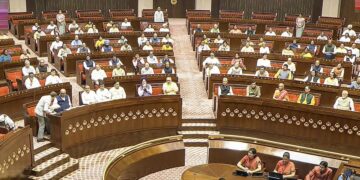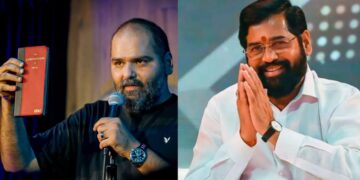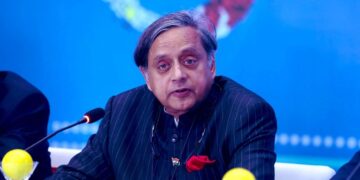Every year we reminisce about the father of our constitution, Bhimrao Ramji Ambedkar, on his 67th death anniversary, but there are so many aspects of his life that have never come to the fore. Here’s a look at his remarkable journey that was marked by relentless efforts to eradicate caste-based discrimination and promote social justice. BR Ambedkar, as many know him, was a prominent Bhartiya jurist, social reformer, and politician who dedicated his life to the upliftment of the marginalized and oppressed sections of society. Born on April 14, 1891, in Mhow, Madhya Pradesh, he belonged to the untouchable “Mahar” caste, facing social discrimination and prejudice from an early age. Despite the discrimination he encountered throughout his life, Ambedkar never let it hold him back. Instead, he went all out in dedicating his life to uplift the marginalized and oppressed in society. His story isn’t just about challenges but also about resilience and unwavering commitment to making a difference.
Interestingly, he became the first person from his community to pursue higher education, earning a degree in economics and law from the University of Bombay, and subsequently completing his doctorate from the London School of Economics. He surely wasn’t just making waves in his community; he was making tidal waves!
Not many are aware about the fascinating tapestry of Ambedkar’s life story. So, lets buckle up to take a deep dive into Baba Saheb’s groundbreaking initiatives, bold moves, and a relentless pursuit of social justice. We will also be joined by various experts and analysts who will be helping us to get more profound understanding about Baba Saheb Ambedkar’s life.
—
out of several instance, where Ambedkar ji became a victim. Once, while Baba Saheb Ambedkar and his brother were returning home, they sat in a bullock cart. When the driver found out they were from the untouchable, “Mahar ” caste, in a fit of anger, he forcefully kicked the children out of the cart and hurled abusive words at them. Such discrimintaory situations in his life kept him wondering why people from higher castes treated untouchables poorly.
While Baba Saheb Ambedkar was urging the citizens to fight for themselves, he used a few lines from the holy Gita to add wisdom to their battle. He stated that the call to struggle for truth in Bharat has been given in the most beautiful way in the Gita. Considering the Gita as the foundation of Satyagraha, he added that “If the objective is auspicious, then it is absolutely justified.” Since the Gita is accepted by all without any discrimination, he believed that it would be appropriate to take an example from it.
He also believed that entry to any place, particularly the sacred temples, must not be prohibited for anyone. Thus, he initiated a satyagraha regarding the matter of entry of untouchables and Dalits in temples.
Highlighting the irony, Ambedkar said that it is ironic that the country Bharat, which criticizes the policy of determining the rights of individuals on the basis of apartheid in South Africa, doesn’t allow a certain section of Hindus, who are believers of God, to enter the temples.
It is not untold that Baba Saheb Ambedkar played a pivotal role in framing the Constitution of India, serving as the chairman of the Drafting Committee. However, besides this, his vision was instrumental in shaping the foundational document that guarantees fundamental rights, equality, and social justice to all citizens. His emphasis was on abolishing untouchability, promoting affirmative action through reservations for the Scheduled Castes and Scheduled Tribes. However, during his childhood he was a victim of untouchability.
Baba Saheb strongly believed that temples are places meant for public worship, and the emotions of the entire Hindu community are connected to them. Therefore, it is not acceptable to allow entry for some Hindus, while prohibiting it for others.
Baba Saheb strongly believed that temples are places meant for public worship, and the emotions of the entire Hindu community are connected to them. Therefore, it is not acceptable to allow entry for some Hindus, while prohibiting it for others.
Finally on April 29, 1947, after a thousand years of hardwork, “untouchability”, the dark chapters of the Bharatiya history, were permanently erased, and the monumental occurrence was inscribed in gilded letters. Once more, the humane principles of life emerged victorious. The resilience of Hindu culture became evident, rekindling the self-assurance that Hindus have persisted and will persevere in their efforts to overcome all adversities.
Dr. Ambedkar always acknowledged the prominence of Hindu philosophy, yet he questioned the origin of the notion of “untouchability.” He pondered why, despite Hindus recognizing a divine presence in every living being, some were deemed untouchable. Not just in Bharat, but the Dalits also became a victim of atrocities in Pakistan that were inflicted on them.
Dr. Ambedkar’s fundamental understanding doesn’t originate from politics but from religion. It encompasses principles of freedom and equality. Only through the observance of liberty and equality within fraternity, security can be guaranteed. For Baba Saheb, another term for “brotherhood” is “humanity”, and “humanity” is the “essence of religion”.
A crucial question always lingered in his thoughts: why do Hindus, known for their tradition of generosity and humanism, exhibit unfair and cruel behavior towards certain individuals. This was because Hindu philosophy always emphasized on the omnipresent soul, and the teachings of the Gita, and preaches not to differentiate between Brahmins and Chandalas.He questioned
why individuals like Mohammed, Martin, Muslims, and Christians, who are opponents of Bhartiyata, consume cow meat, and even engage in the destruction of idols of Ram, Krishna, and Shiva, are approached or touched. But Dalits, who are an integral part of Hindu society, love cows, the Ganga, and worship Ram, Krishna, and Shiva, are deemed untouchable?
From the beginning, Babasaheb’s aspiration was for the anti-untouchability movement to be characterized not as “touchable versus untouchable”, but rather as “Hindu reformer” versus “Hindu conservative”. He held a firm belief that the issue of eliminating untouchability concerns the entire Hindu society.
Ambedkar ji used to believe that all sects originating in the country, such as Vedic, Shaiva, Sikh, Jain, and Buddhist, should be legally regarded as Hindus, and the law should be uniformly applicable to all.
On October 14, 1956, on the auspicious day of Vijayadashami, Baba Saheb, with a serene mindset, let go of all bitterness in his heart and embraced Buddhism, holding the entire nationhood close to his heart. Dr. Ambedkar did not deem Islam or Christianity appropriate for those who have been oppressed for a long time, as he believed that such a conversions might cast doubts on their loyalty to nationalism and patriotism.
Regarding Dr. Saheb’s adoption of Buddhism, Veer Savarkar expressed the view that, in reality, Ambedkar had genuinely returned to the Hindu fold. According to him, Buddhist Ambedkar is synonymous with Hindu Ambedkar. During that period, Mahasthavir Chandramani and several other Buddhist monks issued a statement asserting that Buddhism and Hinduism are two branches of the same tree. A Buddhist writer emphasized that this wasn’t a religious conversion but a process of self-refinement. It doesn’t imply that they have forsaken one religion to embrace another.
According to Baba Saheb Ambedkar ji, if Dalits embrace Islam, the Muslim population in this country will double, posing a risk of Muslim dominance. On the other hand, if they adopt Christianity, the number of Christians will grow, potentially strengthening British dominance in Bharat.”
It is disgraceful when an individual prioritizes their religion or sect over the nation, as it signifies their distorted thinking. Such an approach does not foster genuine nationalism in the country. Dr. Ambedkar firmly believed that our loyalty to nationality should be unequivocal and unambiguous. Though, Article 370 which gave a special status to Jammu and Kashmir has been abrogated now, however, when it was introduced, Dr. Ambedkar was against it as he believed that this would break the unity and harmony of the nation. His thinking was that the land of India should remain united from Kashmir to Kanyakumari and from Peshawar to Rangoon.
Ambedkar has often expressed that he is not fond of the notion that some people declare themselves as Bharatiyas first and Hindus or Muslims second. He believed that given the competing loyalties of religion, culture, language, etc., it might be challenging to cultivate unwavering loyalty towards Bharatiyata. His preference is for people to identify as Bharatiya from the outset and persist in being nothing but Bharatiya throughout their lives.
His love towards the nation and keeping it united can be illustrated through this example. Upon the country gaining independence, an unusual issue had emerged in Kashmir. Nehru’s close ties with Sheikh Abdullah posed challenges to the integration of Kashmir with Bharat. Consequently, there were discussions about the provision of Article 370, granting several privileges to the Muslim-majority Kashmir. Dr. Ambedkar’s sharp perception and foresight promptly detected the gravity of the situation, and he cautioned Nehru about the potential risks associated with incorporating Article 370. However, his resistance was not paid heed to, thus, while drafting the constitution, Dr. Ambedkar had kept this Article 370 temporary so that it could be abolished at any time, which was the main root cause of all the problems in Kashmir.
Dr. B.R. Ambedkar was never in favour of the policy of appeasement practiced by the Congress party, including Mahatma Gandhi. This was the primary reason why Ambedkar criticized the Lucknow Pact. However, despite his opposition, as Congress agreed with their initial demands, their demands escalated quickly. Consequently, when the Muslim community asserted their desire for a separate state, it resulted in the division of the country, and Ambedkar’s thoughts turned into a harsh reality.
Ambedkar had strongly expressed his disapproval of the “Lucknow Pact.” But, it is essential to understand that his criticism was not centered on the violation of minority rights, but rather on the potential threat it posed to Hindu unity. In ‘Bahishkrit Bharat’, Ambedkar wrote that the pact could also possibly jeopardize the future of the Hindus.
After the Revolution of 1857, the percentage of Muslims in the army gradually increased. At that time, Afghanistan, a big Muslim country, existed on the border of India. Thus, a scare was always there in Ambedkar’s mind that if Muslim nations attack Bharat, the army, which had Muslims in such a large number, would defend the nation or will they priortize brotherhood and allow them to enter the Bharatiya borders.
Even in the book “Dr. BR Ambedkar- Ek Chintan” written by Madhulimye, it is mentioned that Ambedkar expressed concerns that Muslims perceive Hindus as non-believers, and want to preferably eradicate Hindus, rather than defending them. If we remember the times of pre-Independence, during the Khilafat movement, Bharatiya Muslims had invited the Amir of Afghanistan to launch an attack on Bharat. Following the conclusion of the Caliphate in Bharat, the Congress initiated the Khilafat Movement in the country. Dr. Ambedkar considered that initiating Khilafat movement in Bharat was baseless. Moreover, he viewed it as a foolish decision by the Congress to endanger the entire country over a religious issue.
Following independence, there was a call for the reorganization of provinces in the country, with language being considered as the criterion. Dr. Ambedkar expressed some concerns about this. He stated that if states are formed based on languages, there is a potential risk of small nationalities emerging in the form of these states.
The distinction between an independent state and an independent nation is quite delicate. We need to seriously consider this matter. There should be a singular official language for government proceedings throughout the country, and Ambedkar believed that language can only be Hindi. If all Indians wish to stay united and foster a shared culture, then it becomes the responsibility of each of us to embrace Hindi as the national language.
Since we are on the topic, let me tell you that Baba Saheb Ambedkar always had profound love towards the Sanskrit language, however, as he belonged to a deprived section of the society, he remained deprived of it. Foreign students who were in the same college could read and write Sanskrit, however, Ambedkar, despite being a Hindu, couldn’t learn Sankrit, which even troubled his conscience. Despite the constant hardships, later on in his life, through his diligent work, Bhimrao gained a deep understanding of Sanskrit and succeeded in becoming a scholar in that language.
Baba Saheb was a thorough patriot, humanitarian, devout individual, and a remarkable person of virtuous character. His broad-mindedness found no space for narrow thinking in his generous heart, and whenever compelled by circumstances to assume a role contrary to his principles, he experienced profound sadness.
His commitment to social justice and equality earned him the title of “Father of the Indian Constitution.” Despite facing numerous challenges and societal prejudices, Ambedkar’s legacy endures as an inspiring symbol of resilience, intellect, and dedication to the cause of marginalized communities in Bharat. His life and work will continue to influence social and political discourse, serving as a reminder of the ongoing struggle for equality and justice.

















Comments